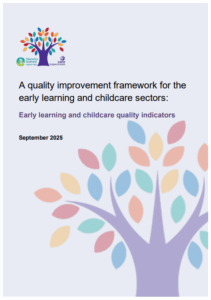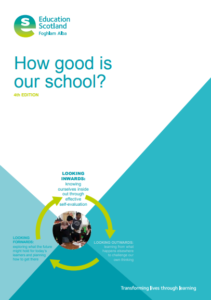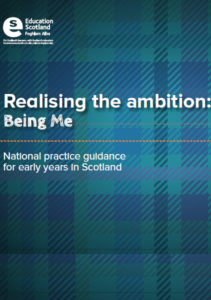Play, learning and developing p28 – Children’s engagement
Careful observation allows us to interpret children’s interests and provide opportunities to extend their thinking without directing their play. We use a variety of approaches to respond to children’s cues to support development of self-regulation, empathy, confidence, creativity and curiosity.
Play, learning and developing p31 – Challenge questions
How well do we support and encourage children’s natural curiosity, creativity and problem solving?
Curriculum p33 – Curriculum Rationale and design
Outdoor learning is a valued and embedded part of our curriculum design. It offers rich opportunities for inquiry, exploration and wellbeing, and is planned progressively to support children’s development and learning across curricular areas. We ensure challenge and enjoyment, breadth, progression, depth, personalisation and choice, coherence and relevance across the curriculum. Creativity and learning for sustainability are embedded in our curriculum design.
Curriculum p37 – Challenge questions
In what ways does our curriculum foster creativity, enterprise, outdoor learning and
learning for sustainability?
Learning, teaching and assessment p38 – Children’s learning and engagement
We are highly effective in using the environment to support children’s
learning. Children explore, experiment, and develop curiosity and creativity through a wide range of high-quality resources and spaces. We carefully consider the flow of the day, taking into account opportunities for children to maximise learning, be active and offer time and space to rest.



